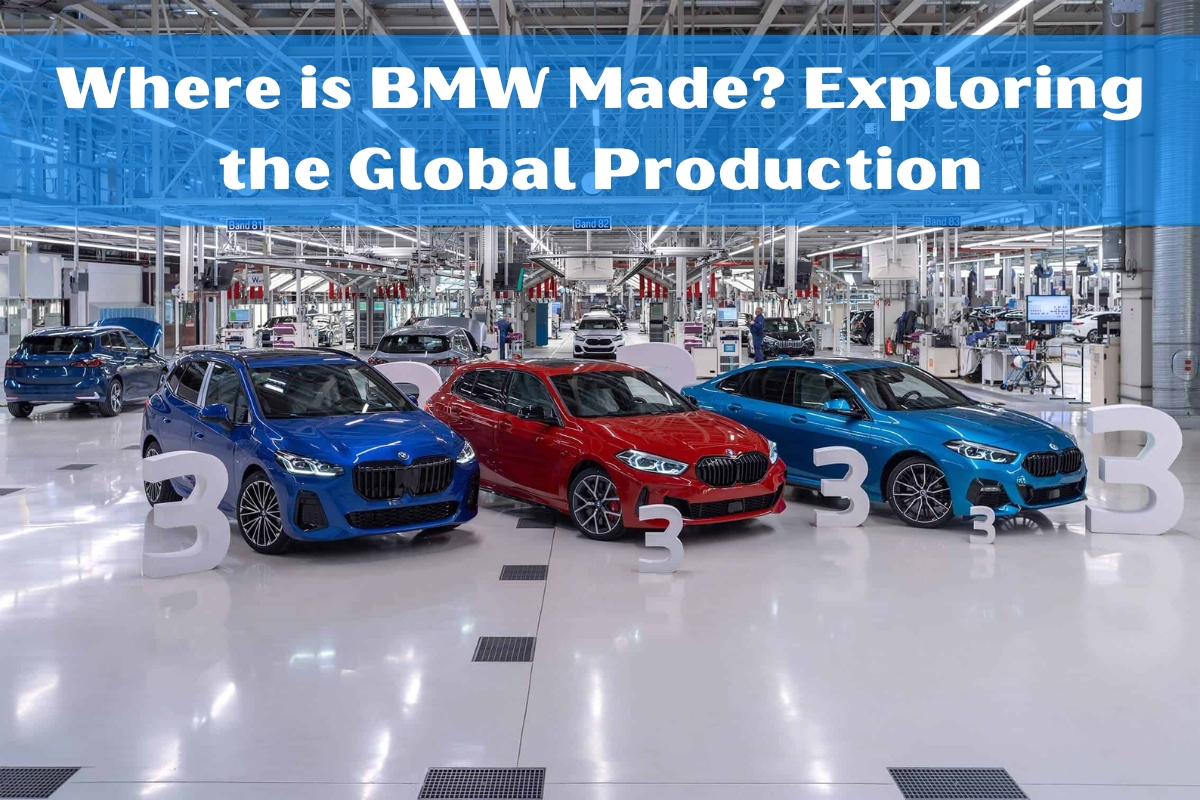Where is BMW Made? Exploring the Global Production

If you’re curious about where BMW vehicles are manufactured, you’re in the right place. In this comprehensive article, we’ll dive deep into the global production network of the iconic German automaker, exploring its key manufacturing facilities across the world.
The Origins of BMW Manufacturing
BMW, short for Bayerische Motoren Werke (Bavarian Motor Works), has a rich history that dates back to its inception in 1916 as an aircraft engine manufacturer. The company’s transition into the automotive industry began in 1928 when it acquired the Fahrzeugfabrik Eisenach, a car manufacturer located in the Thuringia region of Germany.
From those humble beginnings in the early 20th century, BMW has grown to become one of the most prestigious and recognized automakers in the world. While the company’s headquarters and roots remain firmly planted in Bavaria, Germany, BMW’s manufacturing footprint has expanded significantly over the decades, with production facilities now located across five continents.
BMW’s Global Production Network
Today, the BMW Group operates a global network of manufacturing plants, with a total of 31 production and assembly facilities spread across 15 countries. This far-reaching production footprint allows the company to meet the growing demand for its vehicles around the world, while also adapting to local market preferences and regulations.
Some of the key locations where BMW vehicles are produced include:
Germany: The Heart of BMW Production
As the birthplace of the brand, Germany remains the cornerstone of BMW’s global manufacturing operations. The country is home to several major production facilities, including:
- Dingolfing: The largest BMW plant, producing a wide range of models including the 5 Series, 6 Series, 7 Series, and X5 SUV.
- Munich: The historic home of BMW, where the company’s headquarters are located and where models like the 3 Series are manufactured.
- Regensburg: Known for producing the 1 Series, 2 Series, and Z4 roadster.
- Leipzig: Specializing in the production of the i3 and i8 electric vehicles, as well as the X1 and X2 SUVs.
Beyond Germany: BMW’s International Presence
While Germany remains the epicenter of BMW’s manufacturing might, the company has also established a significant international footprint to cater to global demand. Some of the other notable BMW production sites around the world include:
- Spartanburg, South Carolina, USA: BMW’s largest plant globally, responsible for assembling the X3, X4, X5, X6, X7, and XM SUV models.
- Regensburg, Austria: Producing the 3 Series, 4 Series, and Z4.
- Rosslyn, South Africa: Home to the production of the 3 Series.
- Shenyang, China: BMW’s largest manufacturing location in Asia, focused on the 5 Series and X3 for the Chinese market, as well as the all-electric iX3.
These international production facilities allow BMW to better serve its customers in key markets and reduce the need for costly long-distance shipping, while also taking advantage of local labor and resources.
The BMW Spartanburg Plant: A Cornerstone of U.S. Production
One of the most significant components of BMW’s global manufacturing network is its facility in Spartanburg, South Carolina. Opened in 1994, the Spartanburg plant has become BMW’s largest production site worldwide, responsible for assembling a range of the company’s popular Sport Activity Vehicles (SAVs) and Sport Activity Coupes (SACs).
The Spartanburg plant currently produces the BMW X3, X4, X5, X6, X7, and XM models, with the majority of its output destined for export markets. In fact, the Spartanburg facility is the largest automotive exporter in the United States, shipping approximately 70% of its annual production to over 125 countries around the world.
Over the years, BMW has continued to invest heavily in the Spartanburg plant, with the most recent expansion project announced in 2014. This $1 billion investment will increase the facility’s annual production capacity to an impressive 480,000 units, solidifying its status as a crucial component of the company’s global manufacturing strategy.
Sustainability and Innovation in BMW Manufacturing
As BMW continues to expand its global production footprint, the company has also placed a strong emphasis on sustainability and innovation within its manufacturing processes. This commitment to environmental responsibility and technological advancement is evident across all of BMW’s facilities worldwide.
One notable example is the company’s Dadong plant in Shenyang, China, which is known for its focus on sustainable and digitalized production. The Dadong facility features a range of eco-friendly initiatives, including:
- Zero freshwater consumption in the paint shop
- Extensive use of renewable energy, particularly solar power
- Advanced recycling and waste management systems
- Real-time monitoring and data analysis to optimize production efficiency
Beyond its environmental initiatives, BMW is also at the forefront of incorporating cutting-edge technologies and automation into its manufacturing operations. This includes the use of artificial intelligence, virtual planning, and data-driven decision-making to enhance productivity, quality, and transparency across its global production network.
The Future of BMW Manufacturing
As BMW looks to the future, the company remains committed to maintaining and strengthening its position as a global leader in automotive manufacturing. This will involve continued investments in its existing production facilities, as well as the establishment of new, state-of-the-art plants to meet the evolving demands of the market.
One area of particular focus for BMW is the integration of electric vehicle production into its manufacturing operations. The company has already taken significant steps in this direction, with the introduction of models like the all-electric i3 and the hybrid-electric i8. Moving forward, BMW plans to expand its electrified vehicle offerings, with the Lydia plant in China set to produce a new, locally-designed BMW i3 BEV model.
Additionally, BMW is exploring ways to further enhance the sustainability and efficiency of its manufacturing processes, leveraging advanced technologies and innovative production techniques to minimize its environmental impact while maintaining the high-quality standards that have become synonymous with the brand.
Conclusion: The Global Reach of the Ultimate Driving Machine
From its humble beginnings in Bavaria, Germany, BMW has grown to become a truly global automaker, with a manufacturing footprint that spans multiple continents and caters to the diverse needs of customers around the world. Whether it’s the iconic 3 Series sedan rolling off the production line in Regensburg or the X5 SUV being assembled in Spartanburg, the BMW brand is defined by its commitment to engineering excellence, technological innovation, and an unwavering dedication to the “Ultimate Driving Machine” philosophy.
As BMW continues to evolve and adapt to the changing automotive landscape, its global production network will undoubtedly play a crucial role in shaping the future of the brand. By leveraging its international manufacturing capabilities, the company can ensure that the thrill of driving a BMW is accessible to enthusiasts in every corner of the globe.





